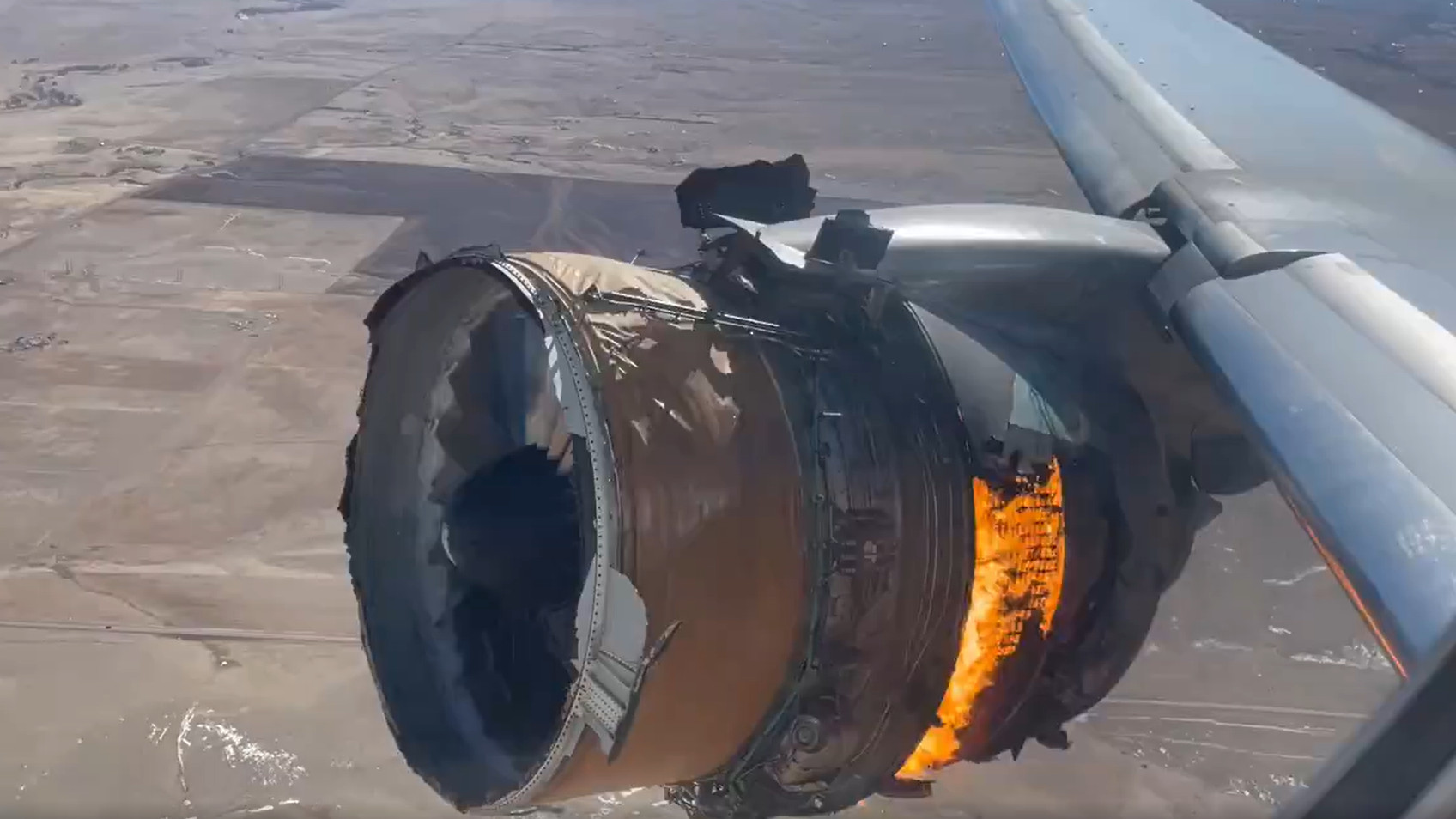
United Airlines says it is removing 24 Boeing 777 aircraft from its fleet “out of an abundance of caution” following Saturday’s incident over the skies of Denver.
Posted Feb 22, 2021, 05:32AM EST
United Airlines says it is removing 24 Boeing 777 aircraft from its fleet “out of an abundance of caution” following Saturday’s incident over the skies of Denver.
The move comes after a United Airlines flight out of Denver bound for Hawaii was forced to turn back moments after takeoff when it suffered a catastrophic failure and rained pieces of the engine casing on a neighbourhood, narrowly missing a home.
There were no injuries among the 231 passengers and 10 crew on board.
“Since yesterday, we’ve been in touch with regulators at the NTSB and FAA and will continue to work closely with them to determine any additional steps that are needed to ensure these aircraft meet our rigorous safety standards and can return to service,” United said in a statement.
The airline adds a small number of customers are likely to be inconvenienced by the grounding.
The National Transportation Safety Board said in a separate statement that two of the engine’s fan blades were fractured and the remainder of the fan blades “exhibited damage.” The NTSB did caution that it was too early to draw conclusions about how the incident happened.
The U.S. Federal Aviation Administration on Sunday issued an Emergency Airworthiness Directive which will require immediate or stepped-up inspections of Boeing 777 airplanes equipped with certain Pratt & Whitney engines.
“We reviewed all available safety data following yesterday’s incident. Based on the initial information, we concluded that the inspection interval should be stepped up for the hollow fan blades that are unique to this model of engine, used soley on Boeing 777 airplanes,” read a statement from FAA Administrator Steve Dickson.
Statement from FAA Administrator Steve Dickson. pic.twitter.com/dGkUYuKNAL
— The FAA ✈️ (@FAANews) February 21, 2021
The directive does not affect Boeing 777 aircraft operated by Air Canada, who say their planes are fitted with a different engine.
Airlines in Japan and South Korea also operate planes with the Pratt & Whitney engine. Japan Airways and All Nippon Airways have decided to stop operating a combined 32 planes with that engine, according to Nikkei.
Nikkei reported that Japan’s Ministry of Land, Infrastructure, Transport and Tourism also ordered the planes out of service, and the ministry said an engine in the same PW4000 family suffered unspecified trouble on a JAL 777 flying to Haneda from Naha on Dec. 4. It ordered stricter inspections in response.
Files from The Associated Press were used in this report





